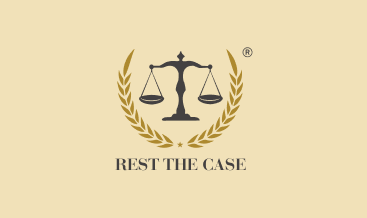
As per section 2 (zb) of Trademarks Act, Trademark is a mark capable of being represented graphically and capable of distinguishing one person's goods or services from those of others and may include the shape of goods, including the Packaging and Combination of Color.
It also includes a mark used concerning goods or services to indicate or to indicate a connection in the course of trade between the goods or services.
The essential purpose is to distinguish the Particular Goods and Service, from the other goods and services of the same class or different class. It can be a combination of word, colour as well as abbreviations.
The other objective of this act is that the law in this matter is designed to protect traders against unfair competition which consists of acquiring for oneself, by means of false or misleading devices, or benefit of reputation already achieved by rival traders. Hence, trademark law has been prescribed to protect any person's rights and promote fair business across the country.
Also Read : Is NFT Legal In India?
CASE LAW
TRADEMARK INCLUDES ABBREVIATION OF A NAME
The definition of a trademark is extensive and means, inter alia, a mark capable of being represented graphically and capable of distinguishing one person's goods or services from those of others. Mark includes other things such as names or words, including any abbreviation of a name.
AN INDICATION TO THE PURCHASER
The Hon’ble Supreme Court in the matter of Sumat Prasad Jain vs Sheojanam Prasad AIR 1972 SC 2488 has laid down the settled principle of law that a trademark means a mark used in relation to good to indicate or to indicate a connection in the course of trade between the goods and some person having the right as the proprietor to use that mark. The function of a trademark is to give an indication to the purchaser or a possible purchaser about the manufacture or quality of the goods and to give an indication to his eye of the trade source from which the goods come, or the trade hands through which they pass on their way to the market.
NO EXCLUSIVE RIGHT OVER COMMON NAME
The Hon’ble High Court of Delhi in the matter of S.K. Sachdeva and Anr vs Shri Educare Limited and Ors. have held that no one has exclusive right over common names. The court held that the respondents themselves had taken a categorical stand that the word ‘SHRI RAM’ is a popular deity in Hinduism and no proprietor can claim exclusive rights on the mark ‘SHRI RAM’. Secondly, they stand that the mark ‘SHRI RAM’ is common to trade and several ‘SHRI RAM’ formative marks peacefully coexist on registering a trademark. Thirdly, the appellants have prima facie shown that several schools exist using the name ‘SHRI RAM’ in existence even before adopting the mark by the respondents.
About The Author:
Adv. Rohit Singh, Managing Partner at PSK Legal Associates, is a seasoned commercial lawyer with a stellar reputation. With years of legal experience, he advises prominent clients across industries like education, IT, banking, pharmaceuticals, and more. His expertise spans Civil & Criminal Law, Corporate Law, Property Law, ADR, and Banking Law. Formerly in-house counsel at Reliance Capital, he later worked with the Former Advocate General of Punjab. His strategic legal insights have significantly benefited corporate clients, especially in complex corporate matters.





